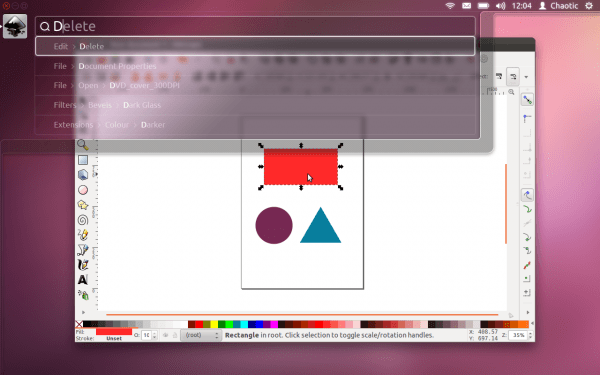Leeky
Posts: 3,357 +116
Ubuntu is set to replace the traditional menu system with a head-up display (HUD), enabling users to type or speak commands in its upcoming April 2012 long term support (LTS) release of the popular Linux distribution. Rather than using the traditional drop down menu, the Ubuntu HUD uses a transparent text box in which you can type or speak what you want to do to perform actions or tasks.
Canonical founder and former CEO Mark Shuttleworth announced the new feature on his blog. "The core idea [of HUD] is to get to a world where people can direct an application to do what they want," he said. "Having stated your intent, the application leads you down a simple journey to get that done."
It will use fuzzy matching and learns commands from past usage to ensure it returns the correct result during searches on the first time. Over time it will also prioritize tasks you perform more frequently when results are displayed. The feature uses a vocabulary UI, or VUI as Ubuntu is calling it, that is supposedly closer to the way users think. Shuttleworth says the tree is no longer important, what's important is the efficiency of the match between what the user says, and the commands the operating system offers up for invocation.
One major drawback would be for beginners, the company acknowledged, who could struggle without a menu in which to search if the exact commands are unknown. But they firmly believe the benefits outweigh the disadvantages in this scenario.
"Searching is fast and familiar, especially once we integrate voice recognition, gesture and touch. We want to make it easy to talk to any application, and for any application to respond to your voice. The full integration of voice into applications will take some time. We can start by mapping voice onto the existing menu structures of your apps. And it will only get better from there," Shuttleworth further commented.

He believes that even without voice support, the HUD is faster than browsing through the drop down menus using a mouse, and more simple than using hotkey’s which can change between different applications.
There is no doubt that the drop down menu system has remained the one constant feature that has continued to be integral to operating systems as they have advanced over the years. That said, it is "tried and tested" and used universally across every platform. The HUD marks a complete fundamental change in the way we interact with the computer.
It raises an interesting question about how users will be interacting with their computers in the next 10 to 20 years. Is this a feature that we’ll see other OS developers integrate into future OS releases on other platforms like Windows, or will the drop down menu in some form always be considered the number one way of performing tasks and actions on a computer?
https://www.techspot.com/news/47193-ubuntu-1204-to-replace-traditional-menus-with-new-hud.html